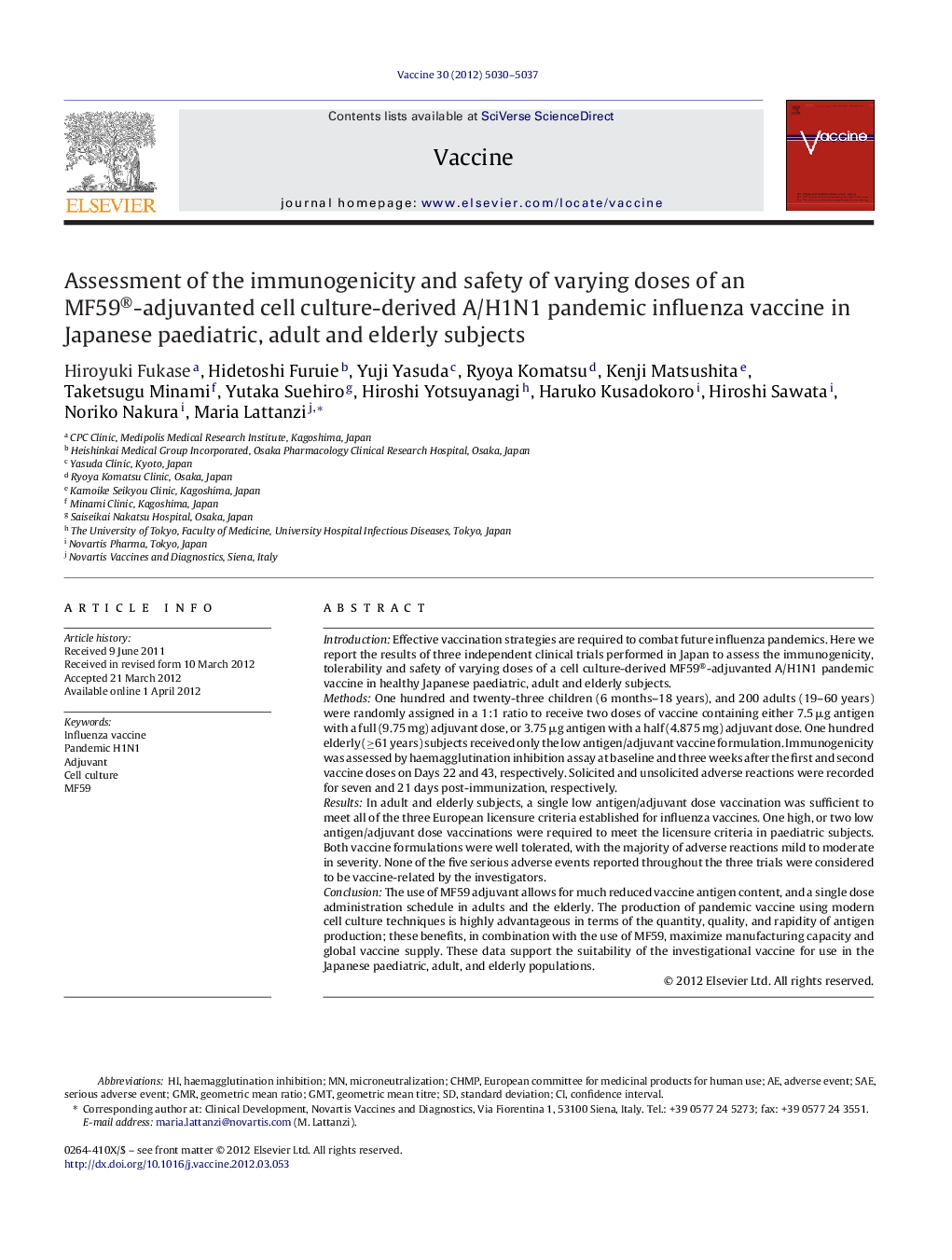| کد مقاله | کد نشریه | سال انتشار | مقاله انگلیسی | نسخه تمام متن |
|---|---|---|---|---|
| 2402899 | 1102865 | 2012 | 8 صفحه PDF | دانلود رایگان |

IntroductionEffective vaccination strategies are required to combat future influenza pandemics. Here we report the results of three independent clinical trials performed in Japan to assess the immunogenicity, tolerability and safety of varying doses of a cell culture-derived MF59®-adjuvanted A/H1N1 pandemic vaccine in healthy Japanese paediatric, adult and elderly subjects.MethodsOne hundred and twenty-three children (6 months–18 years), and 200 adults (19–60 years) were randomly assigned in a 1:1 ratio to receive two doses of vaccine containing either 7.5 μg antigen with a full (9.75 mg) adjuvant dose, or 3.75 μg antigen with a half (4.875 mg) adjuvant dose. One hundred elderly (≥61 years) subjects received only the low antigen/adjuvant vaccine formulation. Immunogenicity was assessed by haemagglutination inhibition assay at baseline and three weeks after the first and second vaccine doses on Days 22 and 43, respectively. Solicited and unsolicited adverse reactions were recorded for seven and 21 days post-immunization, respectively.ResultsIn adult and elderly subjects, a single low antigen/adjuvant dose vaccination was sufficient to meet all of the three European licensure criteria established for influenza vaccines. One high, or two low antigen/adjuvant dose vaccinations were required to meet the licensure criteria in paediatric subjects. Both vaccine formulations were well tolerated, with the majority of adverse reactions mild to moderate in severity. None of the five serious adverse events reported throughout the three trials were considered to be vaccine-related by the investigators.ConclusionThe use of MF59 adjuvant allows for much reduced vaccine antigen content, and a single dose administration schedule in adults and the elderly. The production of pandemic vaccine using modern cell culture techniques is highly advantageous in terms of the quantity, quality, and rapidity of antigen production; these benefits, in combination with the use of MF59, maximize manufacturing capacity and global vaccine supply. These data support the suitability of the investigational vaccine for use in the Japanese paediatric, adult, and elderly populations.
► Immunogenicity and safety of a novel cell culture-derived A/H1N1 influenza vaccine.
► Antigen/adjuvant dose range study in Japanese infants, children, adults, and elderly subjects.
► One low-dose required in adults and the elderly. One high-dose required for children.
Journal: Vaccine - Volume 30, Issue 33, 13 July 2012, Pages 5030–5037